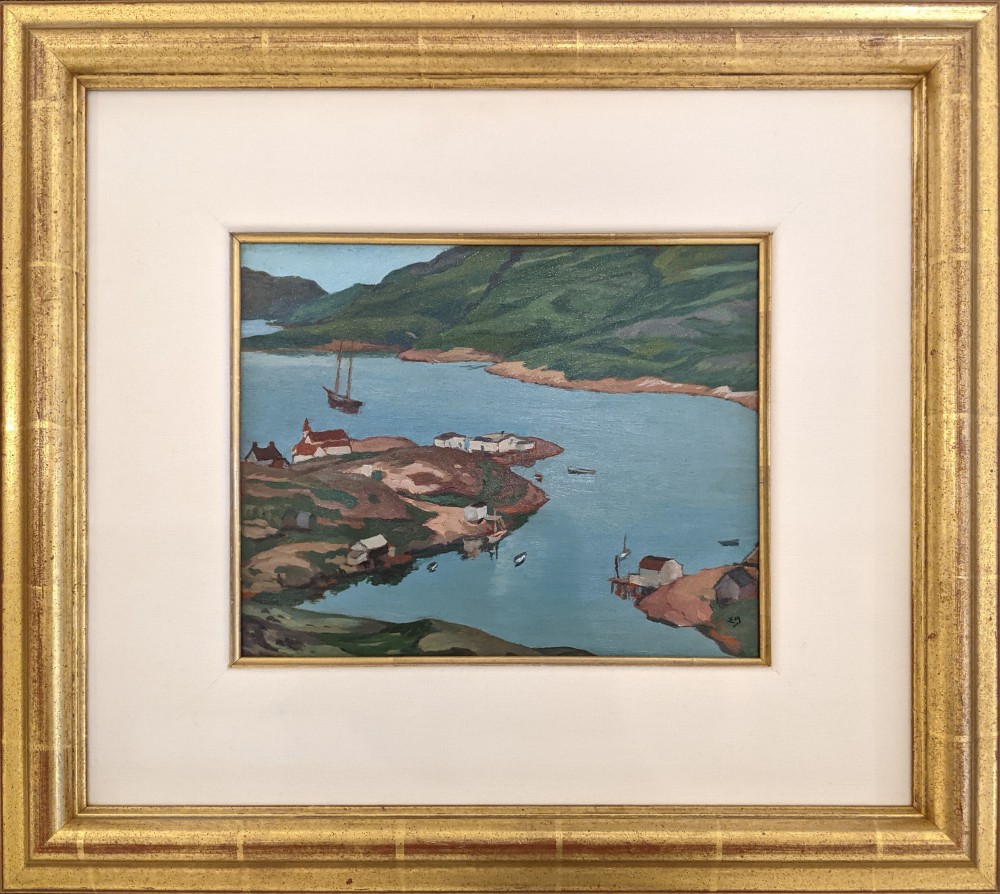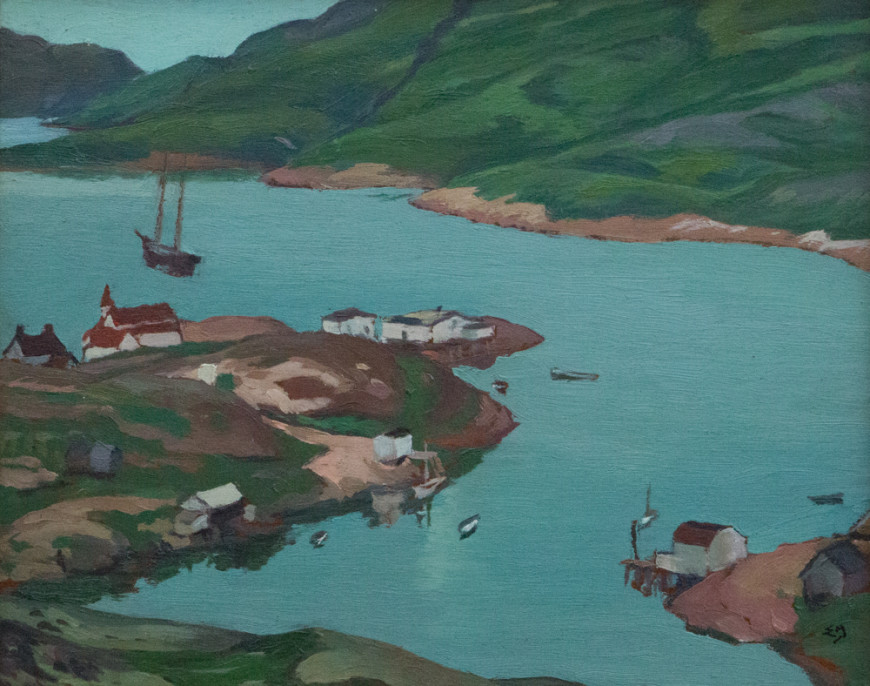Edwin Holgate
Mutton Bay, 1932
1892-1977
Oil on panel
8 1/2 x 10 1/2 in
21.6 x 26.7 cm
Copyright Alan Klinkhoff Gallery
21.6 x 26.7 cm
Sold
Inscriptions
signed with artist's monogram 'EH' (lower right); signed, titled, and inscribed in black ink to artist's label verso, 'Fishing Village - / North Shore / E. Holgate. / N.F.S. (Not for Sale)'Provenance
Private collection, TorontoGalerie Walter Klinkhoff Inc., Montreal
Private collection, Toronto
Expositions
Toronto, Alan Klinkhoff Gallery, Beaver Hall Exhibition, 2016.Toronto, Alan Klinkhoff Gallery, Classical Canadian Art, May 2016.
Toronto, Alan Klinkhoff Gallery, Lawren Harris & Canadian Masters: Historic Sale Celebrating Canada's 150 Years, April 1, 2017.
As a member of the Group of Seven, Edwin Holgate travelled twice to the region near the border of Quebec and Labrador, when Labrador was still part of the British colony of Newfoundland. In 1930, Holgate visited the fishing village of Natashquan, on the Gulf of St. Lawrence directly north of Anticosti Island. In 1932 he returned to Natashquan and also painted a series of paintings at Mutton Bay, another fishing settlement further along the coast. (Both villages are on the Quebec side of the Labrador border. A long-standing dispute over the demarcation line had been settled in 1927.)
The sketches that Holgate painted on his visits to these remote villages are consistently outstanding in quality, and identifiable by their luscious blues, greens and browns.
Mutton Bay (Baie-des-Moutons) is a small, isolated fishing village on Lower North Shore (Basse-Côte-Nord), on the St. Lawrence, just east of the mouth of the Big Mecatina River. Forested mountains surround the protected bay - it is unlikely that there ever were any sheep in this area and the name probably refers to the “moutons” or whitecaps of the seafoam, or the snow-dusted and rounded hills, which resemble a flock of sheep.
Edwin Holgate studied in Paris, and with Maurice Cullen and William Brymner at the Art Association of Montreal, He was an important member of the Beaver Hall Group in Montreal and joined the Group of Seven in 1929. In 1932, he was based in Montreal with a studio on Saint Catherine Street West and was an influential teacher at the École des beaux-arts de Montréal. Holgate taught Paul-Emile Borduas and Jean Paul Lemieux, among others.
The sketches that Holgate painted on his visits to these remote villages are consistently outstanding in quality, and identifiable by their luscious blues, greens and browns.
Mutton Bay (Baie-des-Moutons) is a small, isolated fishing village on Lower North Shore (Basse-Côte-Nord), on the St. Lawrence, just east of the mouth of the Big Mecatina River. Forested mountains surround the protected bay - it is unlikely that there ever were any sheep in this area and the name probably refers to the “moutons” or whitecaps of the seafoam, or the snow-dusted and rounded hills, which resemble a flock of sheep.
Edwin Holgate studied in Paris, and with Maurice Cullen and William Brymner at the Art Association of Montreal, He was an important member of the Beaver Hall Group in Montreal and joined the Group of Seven in 1929. In 1932, he was based in Montreal with a studio on Saint Catherine Street West and was an influential teacher at the École des beaux-arts de Montréal. Holgate taught Paul-Emile Borduas and Jean Paul Lemieux, among others.











